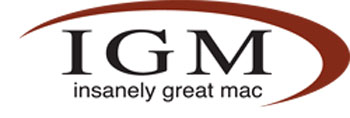Jobs: "A turning point for the music industry"
April 29th 2003
"This will go down in history as a turning point for the music industry," Apple CEO Steve Jobs says in an interview with Fortune magazine. "This is landmark stuff. I can't overestimate it!"
The iCEO was naturally referring to Monday's launch of its Music Store, and the revamped iPods and iTunes, which are closely integrated with the new service.
Somewhat ironically, Jobs says in the interview that he was "pained" to see the music and tech companies at each other's throats over digital music. He argues that Apple has come up with the solution to the problem: realistically-priced, high-quality, downloadable music.
The lengthy Fortune article discusses the destructive competitive behaviour of majors, such as Sony, which resulted in both music companies and tech firms cutting their own throats in an attempt to gain the ascendancy in the market for internet music services.
The success of late-comer Apple to consumer music software and hardware has been an unqualified success, with almost a million of the pricey iPods sold.
But the Music Store is on probation: music companies and Apple have signed only a 1-year contract. Moreover, at least publicly, Apple's competitors aren't fazed by the move. Citing Apple's small PC market share, they argue that the strategy is good for Mac users, but will not have an impact upon the critical mass of Wintel users.
Jobs is much more upbeat about it, telling Fortune, "Just watch. We'll have more people using the iTunes Music Store in the first day than Pressplay or MusicNet have even signed up as subscribers - probably in the first hour."
There is some limited copy protection in iTunes to satisfy music industry execs, including the ability to play songs on three authorized computers and digital encryption. Converting AAC audio to MP3 may also deliver insufficiently high quality for music pirates.
Rob Glaser of RealNetworks, who is cited in the article, argues that Apple's Music Store is too expensive compared to Rhapsody. Glaser points out that 200 songs in a month from Rhapsody costs $9.95, whereas Apple would charge $200 or $1 per song.
Analysis: Three questions: will the Music Store simply generate media ink and revenue in the short term? Or will it make serious cash? Third, will it grow the Mac's market share? Maybe it reaches out not to potential switchers (remember that?), but to Windows-using iPod owners.
